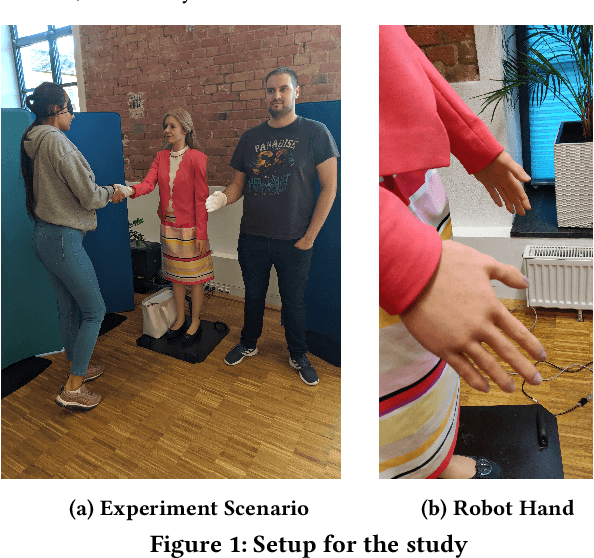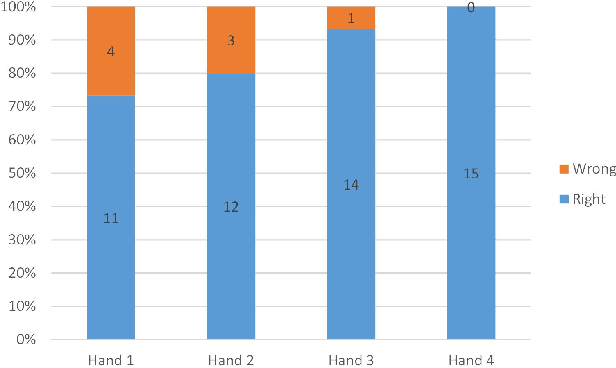Lejla Nukovic
Evaluation of the Handshake Turing Test for anthropomorphic Robots
Jan 28, 2020

Abstract:Handshakes are fundamental and common greeting and parting gestures among humans. They are important in shaping first impressions as people tend to associate character traits with a person's handshake. To widen the social acceptability of robots and make a lasting first impression, a good handshaking ability is an important skill for social robots. Therefore, to test the human-likeness of a robot handshake, we propose an initial Turing-like test, primarily for the hardware interface to future AI agents. We evaluate the test on an android robot's hand to determine if it can pass for a human hand. This is an important aspect of Turing tests for motor intelligence where humans have to interact with a physical device rather than a virtual one. We also propose some modifications to the definition of a Turing test for such scenarios taking into account that a human needs to interact with a physical medium.
 Add to Chrome
Add to Chrome Add to Firefox
Add to Firefox Add to Edge
Add to Edge